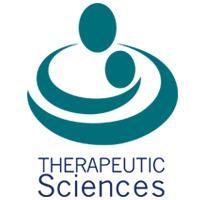Perception
Part 1
Qualifying courses consisting of lectures, practicals, tutorials, demonstrations and ward rounds, extending over one year of part-time study. Courses include:
- Applied Anatomy for OT (Neuroanatomy)
- Applied Physiology for OT (Neurophysiology)
- Occupational Science and Models
Part 2
Qualifying courses consisting of tutorials, assignments and fieldwork extending over one year of part-time study, in
- OT Treatment of Perceptual Disorders (OT assessment and treatment of adults and children, including sensory integration)
The main objective of this course is to produce master clinicians in the field of working with children who may have learning difficulties. The course is set up as block release system, meaning that we have 5 teaching blocks spread over 7 periods in the year. The total number of days away from work comes to 27 teaching days with another 2 days for exams in October. The blocks will be different for students starting in 2017 and have not been finalised yet.
We do teach sensory integration as a frame of reference for treatment within the second year and it forms one of the main treatment modalities. We also teach motor skill acquisition, and cognitive-behavioural frames of reference as approaches to therapy. We also have a focus on the Vona du Toit Model of Creative Ability as a way of treating the occupational performance of children with learning problems.
As a postgraduate qualification, our aim is to create clinicians who can use clinical reasoning to justify their treatment as such do not teach only one frame of reference. We do not teach the SIPT, but we do teach you a number of other ways to assess modulation and praxis. Our focus is on occupational performance as we have a strong belief that this is the unique contribution that occupational therapists bring to the educational and medical team.
During this year you will complete a number of assignments, which means that you do need to have access to clients. These assignments are a mixture of theoretical and practical assignments. The course is structured on adult learning principles and learning is largely driven by you the student. We do not prescribe conditions and we do not teach specific conditions such as autism or ADHD or dyspraxia as such. You have the freedom to choose the type of clients that you do your assignments on and in that way you can learn more about the areas that interest you.


